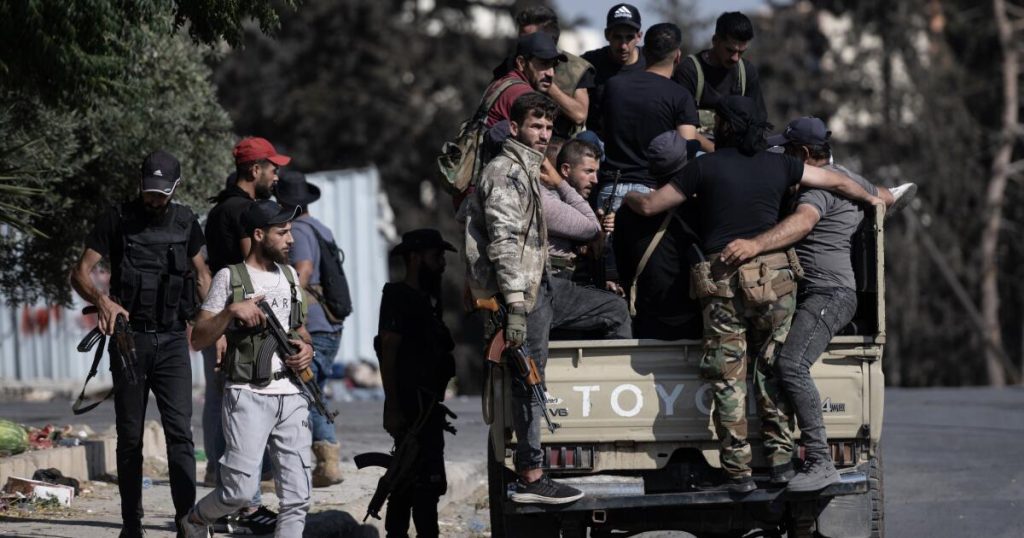Sweida, Syria: A City in Mourning
SWEIDA, Syria — The last words Hatem Radhwan heard from the assailants were, “Kill them all. We don’t want them identifying us.” Moments later, five armed men in desert camouflage, claiming allegiance to Syria’s Ministry of Defense, opened fire in the room shouting, “You pigs!”
The Attack
The 70-year-old blacksmith felt something graze his upper lip—whether it was a bullet or debris, he couldn’t determine. He collapsed to the floor as the gunmen continued their barrage.
Witness Accounts
Rashad Abu Saadeh, a neighbor watching from his apartment across the street, heard the gunfire. “They shot for over half a minute,” he recalled. “It felt endless.” The massacre at the Radhwan family salon was one of many violent incidents that erupted in the Druze-dominated city of Sweida last week.
Casualties Mount
The violence engulfed Sweida in a wave of sectarian conflict, resulting in around 1,380 fatalities and displacing over 120,000 residents. The city, previously untouched by the ongoing 14-year civil war, now resembles a battleground. “There isn’t a single household in the province that isn’t mourning,” remarked Randa Mihrez, a coroner at Sweida National Hospital.
A Grim Discovery
After five minutes of silence, Radhwan opened his eyes again, only to find 17 bloodied family members around him. Thirteen were dead, four were critically injured, and Radhwan, remarkably, emerged mostly unscathed.
Political Implications
The brutal situation in Sweida underscores significant challenges for interim President Ahmad al-Sharaa, who took control after ousting longtime dictator Bashar Assad. Despite support from international allies, he has struggled to unify rival factions under his leadership, particularly as government forces appear to align with the Bedouins, raising distrust among minority communities.
A Community Divided
The Druze, a minority group constituting about 3% of Syria’s population, find themselves increasingly isolated. Over the years, they have maintained a cautious distance from both Assad’s regime and opposition forces, hoping to preserve their autonomy. Recent violent escalations have stoked fears that the Syrian government is exacerbating sectarian divisions rather than fostering unity.



